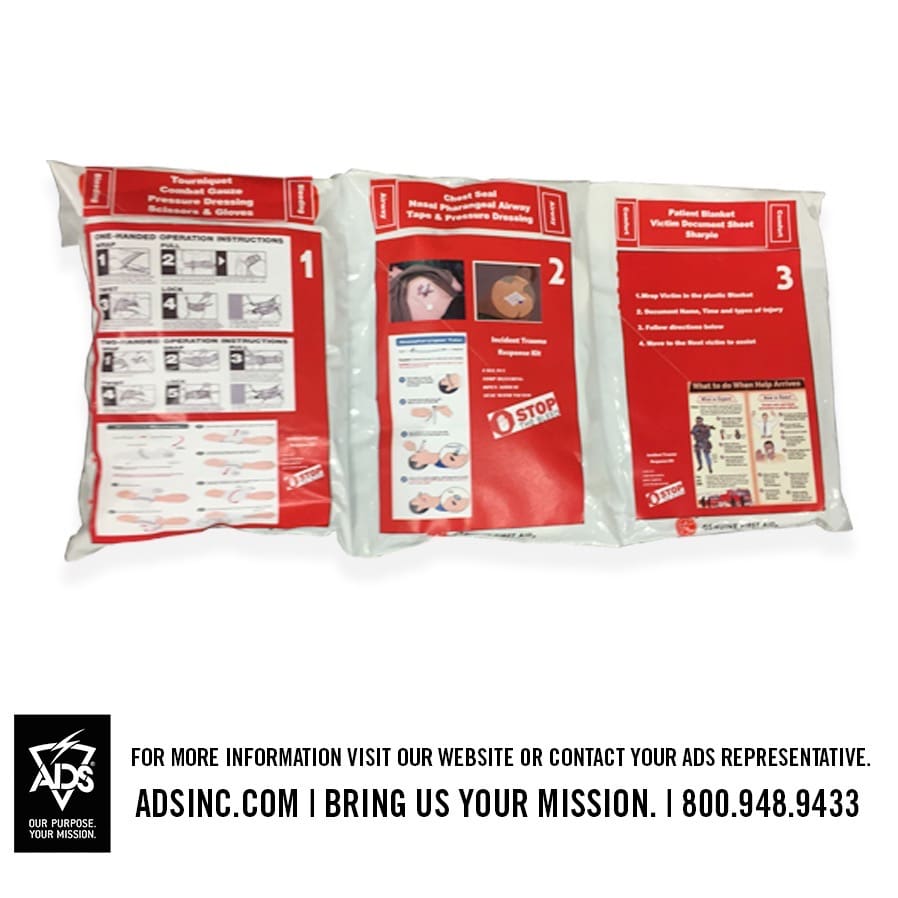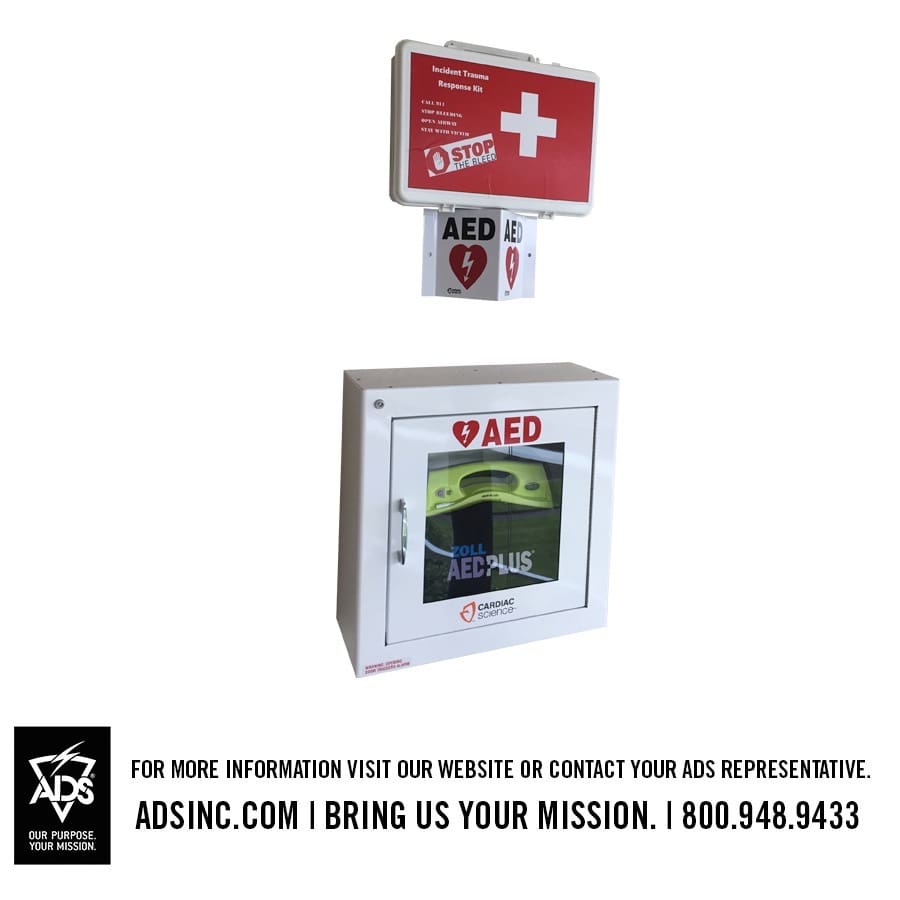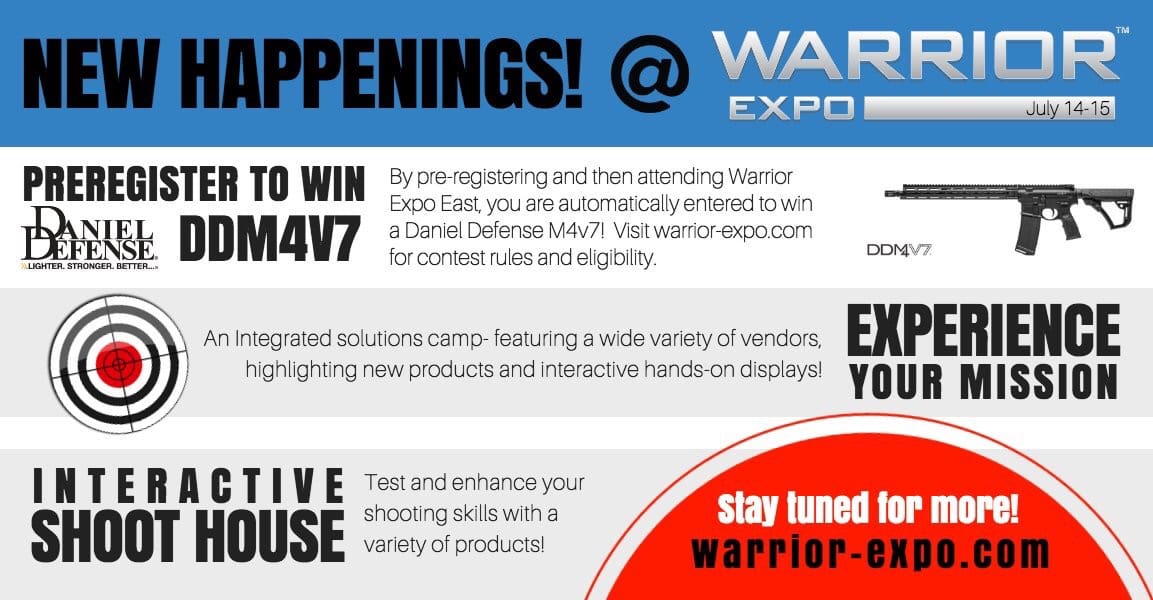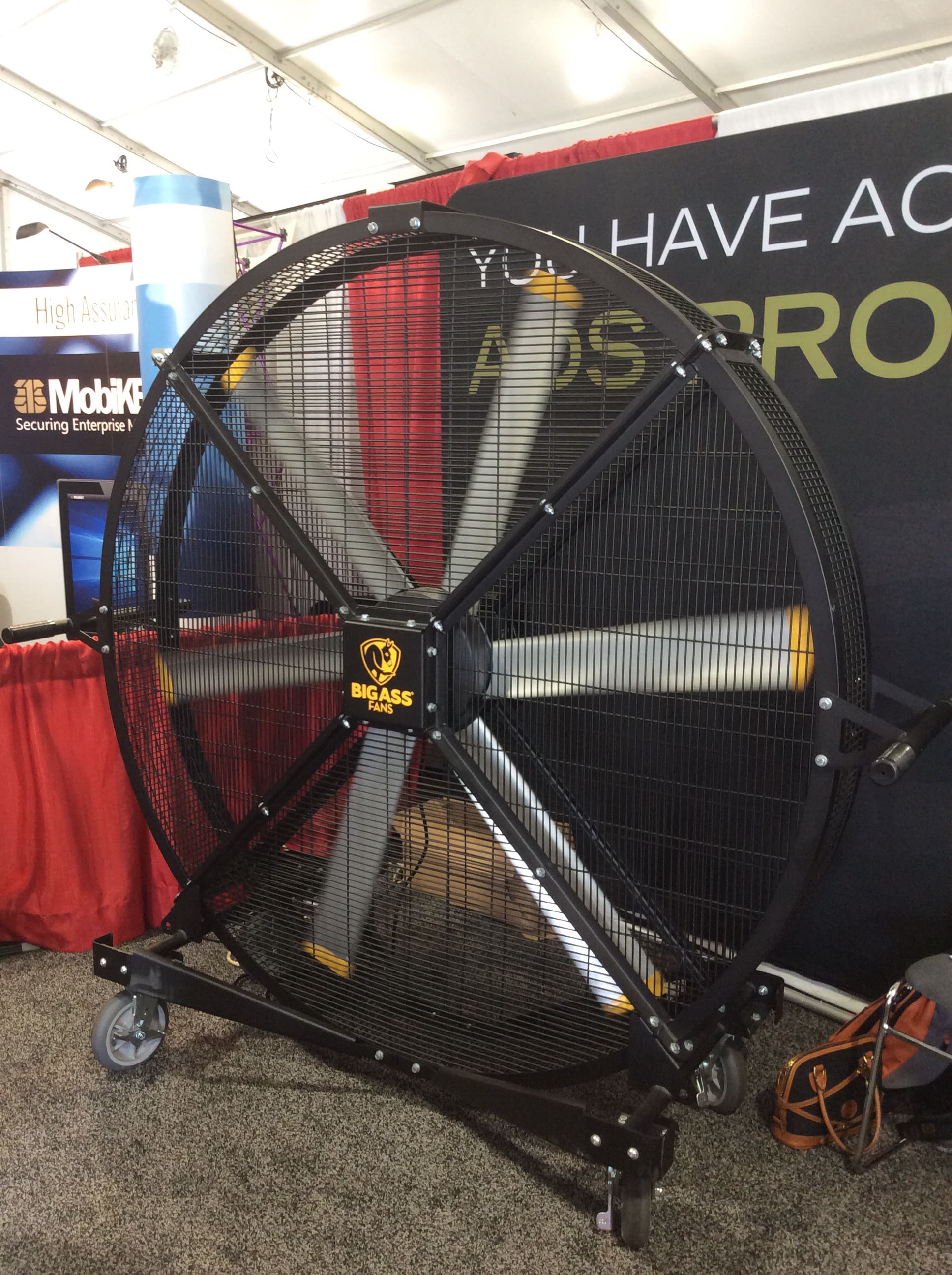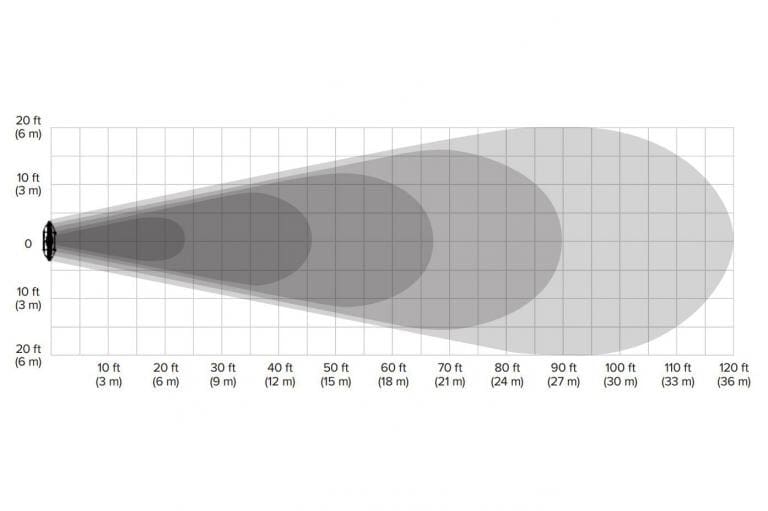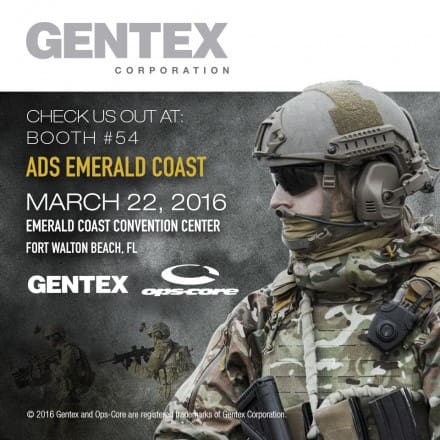Law Enforcement across the country have focused on planning for, and reacting to, Active Shooter events. ADS Inc has shared this blog entry with us to briefly discuss the scenario and to show some material solutions.
As it relates to law enforcement, an “active shooter” situation is described as one in which a shooting is in progress and typical law enforcement protocols may be affected in terms of methods used for responding to the incident. According to the Federal Bureau of Investigation (FBI), the “active” aspect of the term implies both law enforcement and the bystander have the potential to affect the outcome based on their responses. (Federal Bureau of Investigation 2013) According to a study released by the FBI in 2013, Law enforcement and an active shooter exchanged gunfire upon their arrival to the scene in 45 out of the 160 active shooter situations throughout 2000 – 2013.
Nearly half of the shooter involved officer deaths in this study were due to being under fire in open spaces and having little training or knowledge of how to respond or protect themselves. According to Greg Ellifritz, President of Active Response Training (Follow his blog), this study revealed the importance for law enforcement to undergo additional training similar to that of military tactics such as “bounding overwatch.” (Ellifritz 2014)
The new FBI study of 2014 and 2015 active shooter incidents was released just three days after the Orlando nightclub shooting (omitting the statistics from this incident). There were a reported 40 active shooter incidents throughout the 2014 to 2015 time period.
Of the 40 incidents, more than half (26) ended with law enforcement at the scene; 14 incidents ended in both gunfire exchange with law enforcement and the shooter being killed, while 12 others resulted in the shooter being apprehended. This is a dramatic difference from the FBI’s 2000 – 2013 study that revealed more than half (90) of the 160 active shooter situations ended on the shooter’s initiative with the shooter committing suicide, ceasing to shoot or fleeing the scene. (Federal Bureau of Investigation 2016)
Although these frightening statistics (see Diagram A) are hard to comprehend, they show a strong trend towards improving the way our law enforcement are educated and protected in responding to active shooter situations.
ADS’s INVOLVEMENT:
PROTECTING YOU SO YOU CAN PROTECT OTHERS
In response to the growing number of ballistic threats to Law Enforcement, and the government’s effort to create awareness around active shooter situations, ADS has worked with reliable tactical & body armor manufacturers, LBT and Custom Armor Group (CAG), to develop a custom packaged solution.
ADS is proud to offer affordable ballistic protective equipment for law enforcement officers that is light weight, NIJ06 certified and available to ship immediately. ADS’s easy and affordable solution is the ballistic protection your department needs at a fraction of the cost.
ACTIVE SHOOTER BALLISTIC RESPONSE KIT
situation. That doesn’t mean you shouldn’t be prepared for one. Our Active Shooter Ballistic Response Kits are designed to provide you with the utility and protection you need to effectively respond to an active shooter situation without breaking the bank or dealing with long lead-times.
Starting at just $295, each kit comes with your choice of a black Standard or Advanced Plate Carrier Vest from LBT, a set of Level III or Level IV rated ballistic armor plates from CAG, and a matching “POLICE” hook and loop patch.
Click here for a spec sheet.
Visit adsinc.com/active-shooter-response for more information.


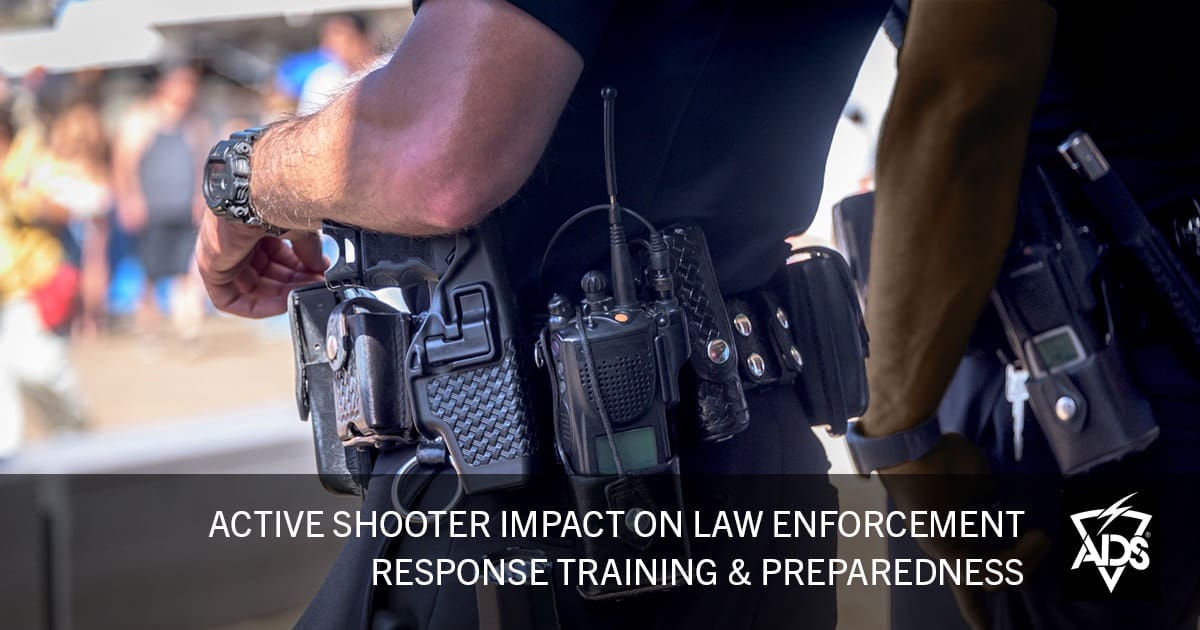
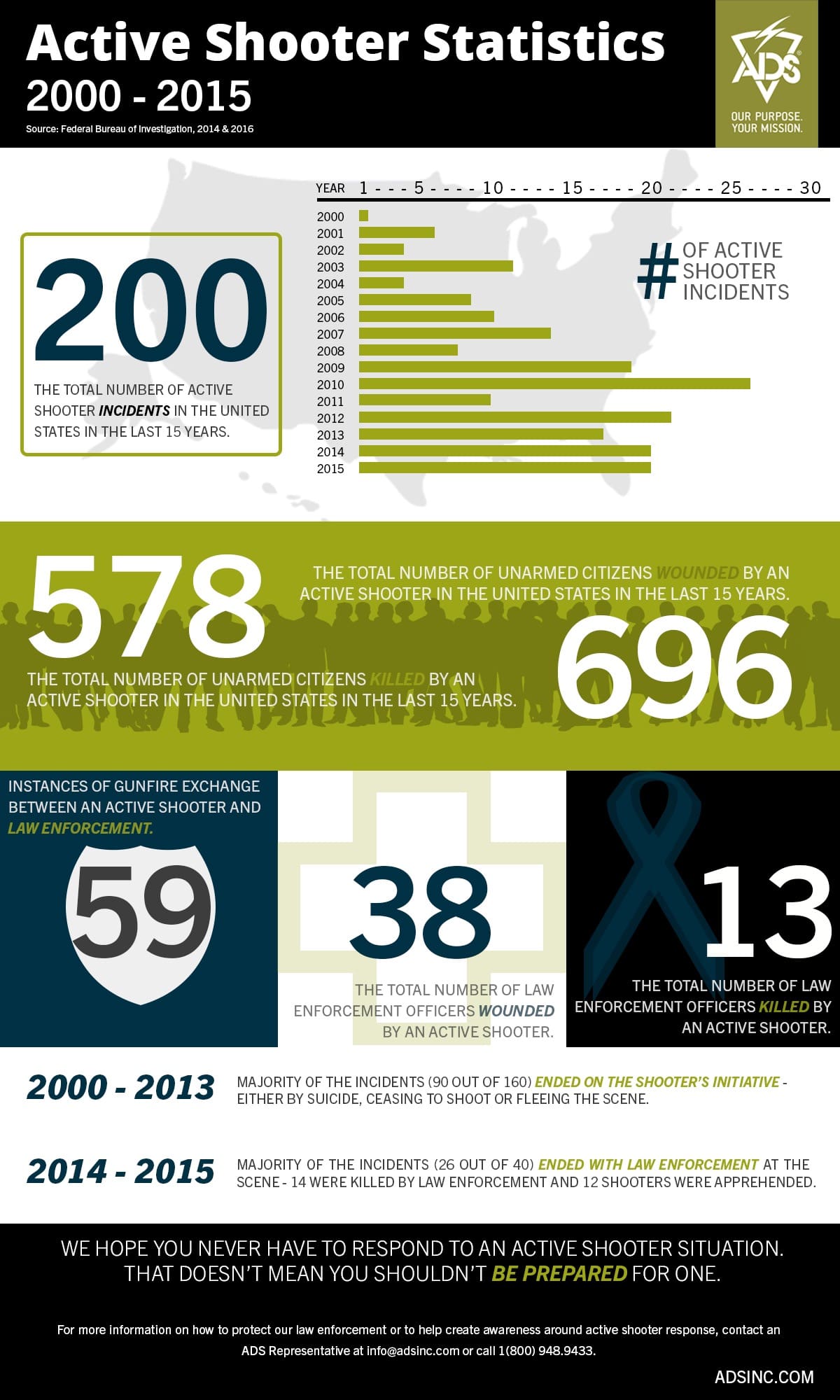
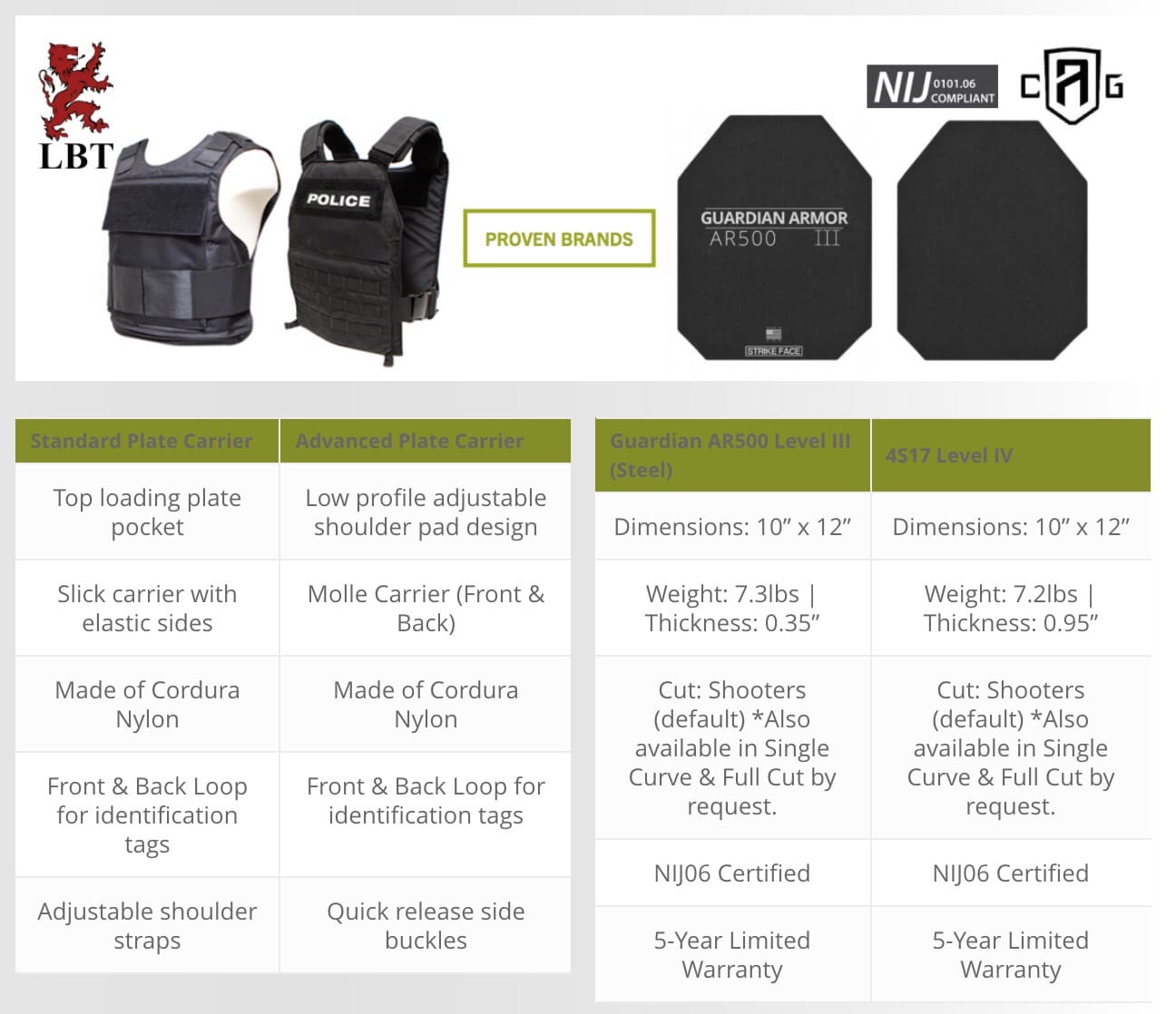
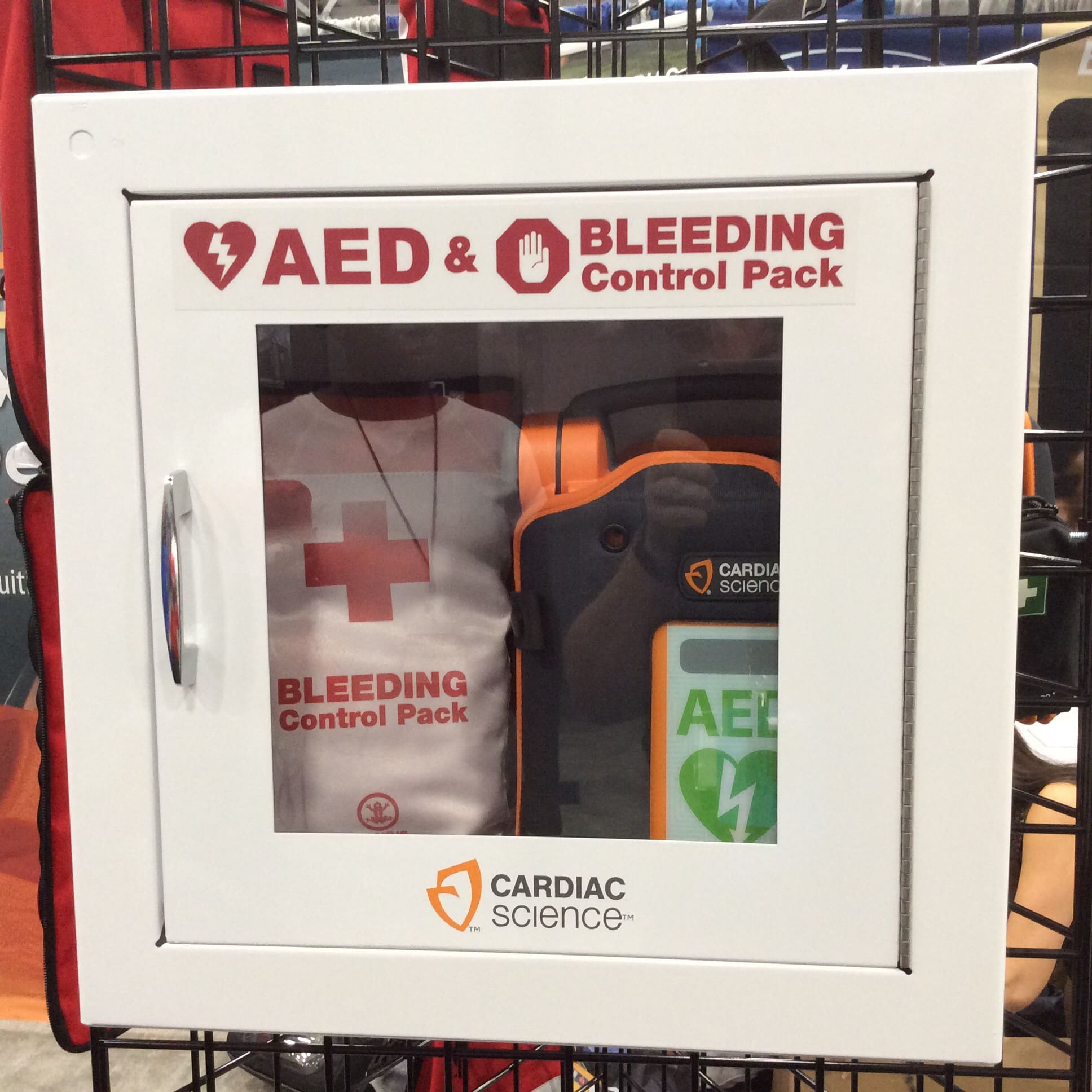
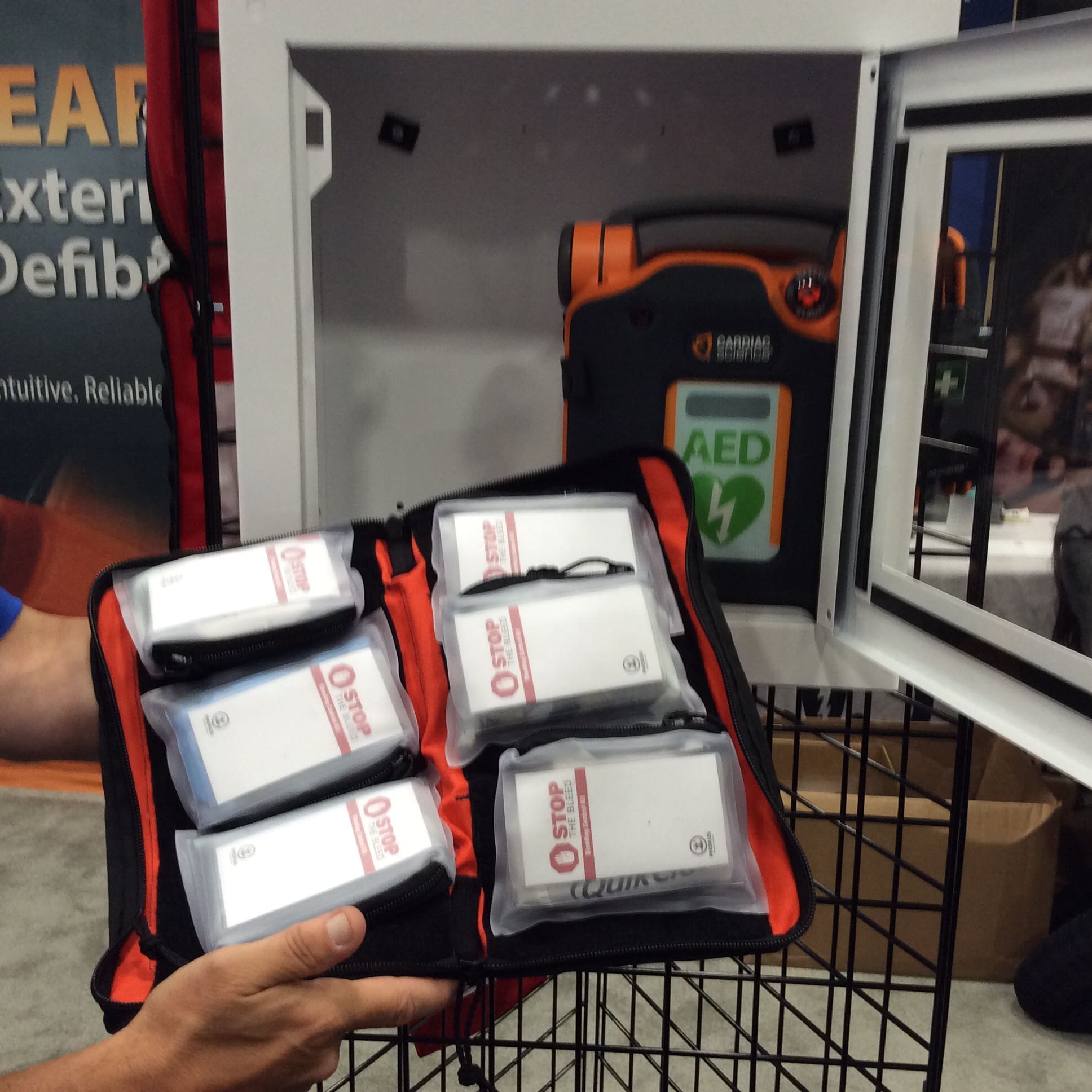
![WO FOB angle 2[1]](https://soldiersystems.net/wp-content/uploads/2016/07/WO-FOB-angle-21-440x215.jpg)
![WO FOB angle 1[2][1]](https://soldiersystems.net/wp-content/uploads/2016/07/WO-FOB-angle-121-440x177.jpg)
![CSE FOB angle view[2][3]](https://soldiersystems.net/wp-content/uploads/2016/07/CSE-FOB-angle-view23-440x239.jpg)
